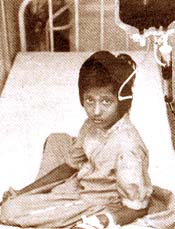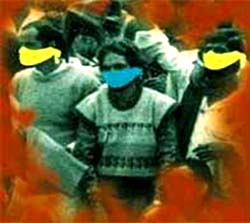The budget this year provided 15 per cent higher allocation for health and 20 per cent for education. However, this may not mean that more children will learn to read or write or more doctors will be available at public health centres. In the present context, outlays are supposed to be considered ends in themselves. While higher outlays are welcome, there is an urgent need to measure outcomes, the actual effectiveness of a government scheme. A clear index of deliverables is what will lead to other reforms: rewarding states that are doing it right and implementing mid-course correction in areas where the scheme fails to take off. A paragraph towards the end of this year's budget speech shows that the government is beginning to wake up to this need: "I think we do not pay enough attention to outcomes as we do to outlays; or to physical targets as we do to financial targets; or to quality as we do to quantity. Government therefore proposes to put in place a Central Plan Schemes Monitoring System (CPSMS) that will be implemented as a Plan scheme of the Planning Commission.' It is heartening to see an acknowledgement of a long-felt void. As the government disburses more money, there is an even greater need to track it better, to find out a rupee's worth in intervention A versus B or its performance in different states. For now, one has to depend on a few private NGOs/research institutions who fulfill this need: For example, Pratham, an NGO working in the field of primary education, comes out with an annual survey called ASER that has some startling findings on Sarva Siksha Abhiyaan, a Centrally-sponsored programme that aims to put all children into school, even in the remotest parts of India. They found the number of days a teacher is actually teaching in class is abysmally low. They had a percentage for children who are in secondary school but can neither read nor write. There is no government agency that comes up with similar data. India is wasting precious resources if teachers are not found in classrooms after two decades of the existence of this "flagship programme'. The government did make an effort to come out with an "outcome budget' but, according to experts, it was not even worth the paper it was written on. It had never-ending tables with targets achieved in the form of numbers. Drinking water reports had data on the number of taps and villages covered but not the quality, quality and availability of water that is distributed. The outcome budget stops short of measuring important aspects like absenteeism and who is accessing these services created by these schemes. Anyone reading it will be no wiser if she wants to find out where to put the money the next year. Once government has evolved the mechanism of measuring these outcomes, it can take the next step: link performance with outlays for states. Infant mortality rate, extent of immunisation, literacy for women, feeding programmes should be systematically collated to form a clear index. Central share of the scheme's money should be transferred based on the performance of states on this index. The fuzziness on performance has another implication too: the government is not able to under-take mid-course correction. For example, the Supreme Court has asked the government to universalise the Integrated Child Development Programme. With no improvement in malnourishment figures for children, which are higher than that of Sub-Saharan Africa, there is clearly something wrong. The government is starting from scratch in trying to figure out what is going wrong. A fresh committee has been set up to brainstorm, without any data to arrive at clear answers. The number of anganwadis set up each of the last five years, state-wise, is available. But it has no information on whether the anganwadi worker actually comes there, feeds children in the 0-6 age group with supplementary nutrition, takes care of their health and immunisation needs and pays special attention to malnourished children. N.C. Saxena, who is a court-appointed commissioner for monitoring the mid-day meals and the ICDS programme, is a strong votary for measuring outcomes versus outlays. In an article, he goes as far as to suggest action against officers who indulge in bogus reporting of figures. For instance, in Uttar Pradesh, the number of fully immunised children being reported by the state government was almost 100 per cent in 2002-03. A rapid household survey found only 30 per cent of children to be fully immunised. "Such cases of flagrant over-reporting should not go unpunished,' he says, stressing on the need for independent agencies verifying data for the government and then disseminating it widely. Such steps will need a complete change in bureaucratic mindset. This signal from the finance minister, hopefully, will not go unnoticed if India is serious about inclusive growth.












